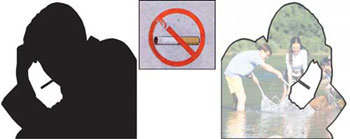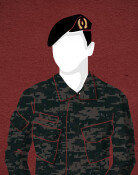Try to Quit Smoking during Summer Vacation
Try to Quit Smoking during Summer Vacation
Posted July. 13, 2003 22:23,

After the Public Health Law went into effect on July 1, many people now say that they will quit because they feel so irritated and discriminated. The government`s campaign against heavy-smokers seems to work well in this regard.
For those considering quitting smoking, the summer vacation season can be a right time to do just that. When working, it is not easy to quit. You feel pressure from the work and often drink with coworkers after work. Besides, some of coworkers who are smokers implicitly urge you to stay on the course with them.
When the summer vacation season comes, you will be free from this kind of temptation and also win support from your families. So there are high chances. If you know the rule of `3 Ss and 5Ds,` you might find quitting smoking less difficult than you initially thought.
▽Know Yourself
The remarks made by the great Greek philosopher Socrates are not just for Athens at that time. It also works well for those trying to quit smoking. When you consider the power of Self-Efficacy and Self-Cognition and develop a Strategy duly, your chances get higher.
Many people fail due to the problem with the self-efficacy. They aware of the need to quit smoking, but after one of two aborted tries, they lose confidence and begins to self justify.
The most common reasoning is that smoking is good for relaxation. The fact is, however, that smokers are more susceptible to stress than non-smokers. It can be said, therefore, smoking is a main cause of stress.
They also argue that it is better to continue smoking given the stressful days they will go through. They also point to that many old men are sound and well after smoking decades or that Winston Churchill lived long despite his love for cigarettes.
When you smoke, however, chances of developing lung cancer, strokes and heart attacks increase to more than 90%. So you must stop the self-justification and begin to imply to yourselves, ˝I can quit,˝ believing the power of self-efficacy.
To do so, they need to realize why they fail to quit smoking. While it is commonly said that whether you quit or not is a matter of determination, experts point out that many fail because of weak health. When you are physically strong, you can fight off the craving well. But when you are weak, you might succumb to the symptoms.
Those exposed to constant fatigue and stress must take a rest three times longer than usual after starting to stop smoking. They also need to do exercise and avoid drinking. Since drinking and smoking are closely related, you become eager to smoke when drinking.
This is why the summer vacation season serves as the right time. People who are weak or heavily addicted to nicotine can use such aid devices as medicines and nicotine patches. When you take Buprophion SR or Nortriphtylin, chances get higher. You are required to get doctors prescription for these drugs.
Women are in particular more addicted to nicotine and tend to continue smoking despite the stigma against female smokers. Taking medicines, therefore, will be of good help for them.
▽Observe 5Ds during the smoking prohibition period
Withdrawal syndrome comes to everybody during the smoking prohibition period.
You can get over this critical period by △deep breathing through your nose, △drinking at least 8cups of water, △doing something else, △discussing the problem with your families, △delay trying smoking counting numbers to 100∼200, etc to overcome the urge.
Thinking about the reasons for quitting also helps. Research shows that thinking about the future health of their families rather than their own helps and highly successful in quitting cigarette smoking.
Even after the holidays, for 2~3 months avoid temptations and tryout the above stated methods. Especially avoid your smoking friends.
Praise yourselves daily for a successful smoking prohibition period and enjoy good aroma and good food to enjoy the freedom from smoking.
(Advice: Prof. Ryu Tae-woo, Dept. of Family Medicine, Medical College, Seoul National Univ., Prof. Kim Khung-gon, Dept. of Family Medicine, Medical College, Yonsei Univ. and Prof. Kim Chul-hwan, Dept. of Family Medicine, Medical College, Injae Univ.)
Seong-Ju Lee stein33@donga.com







